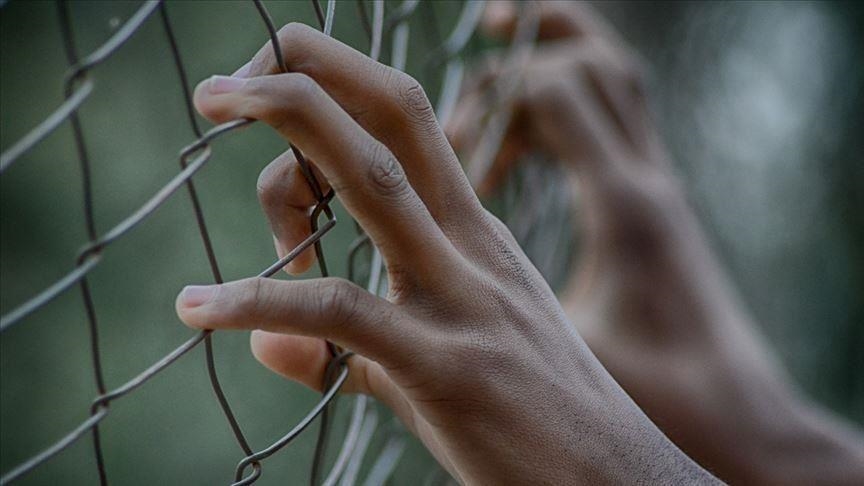 File Photo
File Photo
GENEVA
Torture is an "awful subject" that the media does not like to cover, according to Dr. Vivienne Nathanson, a member of the UN Voluntary Fund for Victims of Torture and former chair of its board.
"This year also marks the 40th anniversary of the United Nations Voluntary Fund for Victims of Torture," said Nathanson, who told Anadolu Agency that the effects of torture can sometimes go on for generations after someone is subjected to it.
Sunday marks UN International Day in Support of Victims of Torture.
Torture often happens in dark places far removed from the public eye and can happen in any country, often used to try to control people, said UN experts.
It exists in many of the world's countries, said Nathanson.
In some countries, it is relatively routine, while in others, it is more sporadic. "But that doesn't mean that what you see today is not what you'll see a year from now," she said.
Awful subject
Torture “isn't something the media wants to cover because it is so disturbing and so distressing," said Nathanson. "And yet if they don't, and if it's trivialized by being made almost legitimate in Hollywood films or whatever, then you have a real problem. That is because people don't believe it is as serious and dreadful as it is.”
The Geneva Press Club gathered journalists from around the world this week for a hybrid news conference that called for the freeing of the Australian founder of Wikileaks, Julian Assange.
Assange faces extradition from Britain to the US where he could face 175 years in prison after exposing secrets about the atrocities of the war in Iraq.
"While we are observing the Russian war in Ukraine, we see that freedom of expression and values are not being respected," said Edgar Bloch, co-president of Impressum, a Swiss professional journalists' association that is calling for Assange's release.
During the Geneva Press Club meeting, one freelance journalist, who did not name himself, spoke about conditions in US prisons.
"These are essentially isolation and are conditions that have been adopted in US prisons and elsewhere in the world. The objective of this isolation procedure is to disintegrate a person's personality, so this is torture," he said.
Nathanson said whether a person is liked or not, they have human rights.
She noted that Assange had years of being "effectively incarcerated without end,” when he sought refuge in the Ecuadorian embassy from 2012 to 2019 in a bid to try to avoid extradition.
"The fact that being imprisoned can be psychologically harmful doesn't necessarily mean that it is torture. But one needs to look at the conditions very carefully to ensure that it doesn't amount to torture or cruel, inhuman, and degrading treatment," she said.
Nils Melzer, the last UN Special Rapporteur on Torture, resigned earlier this year due to a new job he began, and he will be replaced on July 9, the UN has announced.
Melzer said on the rapporteur's website: "A victim of torture is one too many. It's a man-made disaster that we can end here and now if we so decide."
In 2021, the Special Rapporteur transmitted 449 communications, jointly with other mandate holders or individually, on behalf of individuals exposed to torture and other ill-treatment, Melzer said in his annual report.
No response
As in previous years, Melzer said the vast majority of communications remained without response or received an unsatisfactory response.
"The universal and absolute prohibition of torture and other cruel, inhuman or degrading treatment or punishment is reflected not only in international human rights law but also in international humanitarian law, refugee law, and international criminal law," he said in one of his reports. "No circumstances, including war, public emergency or terrorist threat, can justify the use of torture or ill-treatment."
Nathanson said the UN fund she works for donates money each year to organizations that help survivors of torture.
"The old-fashioned title is for victims of torture, but we think it's more for survivors," said Nathanson.
The British doctor who volunteers her time to the UN torture body said in the last few years "we have seen increasing restrictions on civic space.
"And that has meant increasing difficulties for people providing services to survivors of torture, who tend not to be the people governments necessarily want to see helped."
Effect of coronavirus
As one example experience, Nathanson cited the coronavirus pandemic which was used in some countries to restrict people.
"There were, of course, restrictions on freedom of movement," she said, noting that it can slide into a restriction on civic space.
"It can create difficulties for people who want to protest or to meet together to give each other support," she said.
Regarding when torture occurs, Nathanson said, "I think that one of the pictures that's very important is in times of war. It's very often the case that torture becomes relatively normalized.
"And I think the other thing that happens is, in times of civil unrest or government overthrows."
She said such occurrences can happen on the eve of natural disasters or events that end with mass people movements.
"All of those things put a strain on the way in which states manage infrastructure, and those can lead to torture becoming sporadically common," said Nathanson.
She said torture can be observed when people are given power without much training and oversight.
"So, for example, where you see mass movements of people, then there will be people who become involved and who are effectively becoming people traffickers, if you like, to a great extent, who will also use torture, to control people to bend them to what they want," said Nathanson.
Anadolu Agency website contains only a portion of the news stories offered to subscribers in the AA News Broadcasting System (HAS), and in summarized form. Please contact us for subscription options.

